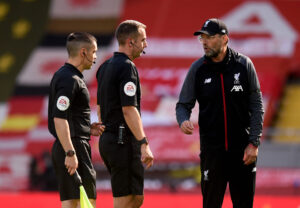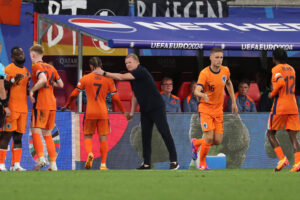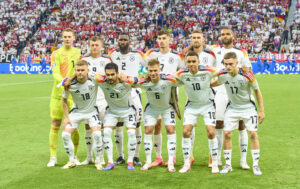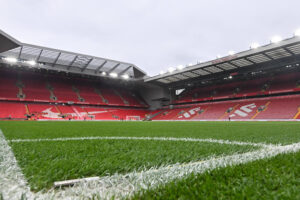The dust has settled once again on another round of matches in the UEFA Nations League, which brought a degree of anticipation, freshness and competitiveness for fans and nations alike.
It is the second edition of UEFA’s new international tournament, one created to eradicate meaningless friendlies and foster a competitive structure for all football lovers to buy into.
Last year, it was Portugal who were crowned the inaugural Nations League victors. The side led by Fernando Santos and captained by Cristiano Ronaldo overcame a stoic Netherlands side in the final, played in Portugal.
Entertaining European Encounters
One can argue that the inauguration of the tournament has been a success to this juncture. For instance, there were many entertaining matches on show in its first season, from England beating Spain 3-2 in Seville and Sweden losing to Turkey, also 3-2.
Teams and fans respectively came on-board with UEFA’s new football format. The concept captured the imagination in a positive sense. Furthermore, there is a feel of a summer tournament in the newness and atmosphere this tournament has already conjured at its final four stage.
The Nations League Positive Steps
It is necessary to underline other positives. For instance, pre-pandemic times, there were great attendances with stadiums mostly full to capacity. The fact they were, on the whole, competitive matches have given greater meaning and purpose.
In addition, the prospect of juicy group matches for supporters to feast upon and indulge in have increased their footballing cravings. No better example came than in Group A1 from the first season with the historical trio of France, Netherlands and Germany. This only heightened the enthusiasm when the hunger for total international friendlies was waning and outdated.
The Latest Nations League Saga
Fifty-five nations officially set out once again on their journey to reach this season’s edition of the final four finale next October. Eighty-eight matches will take place across Europe to determine Europe’s kingpin. Once again, the new competitive format has thrown up some great groups.
Group A1 includes Italy, a dark horse for many to be victorious next summer at the 60th-anniversary competition of UEFA – a pan-European tournament played in 12 different countries (although that could change given the current global situation).
This group also includes the resurgent Netherlands, who played out an entertaining 1-1 draw against Italy in Bergamo, and Poland. And at the moment it is the Poles, along with Robert Lewandowski, who top the group with seven points.
Group A2 is home to England and Belgium, with the Three Lions picking up a deserving win over the Red Devils at Wembley during the opening round of this European matchday. However, Gareth Southgate’s men were humbled by Denmark in game two to give food for thought.
Group A3 is the Nations League’s group of death. It includes reigning champions Portugal, current World Cup holders France and 2018 World Cup runners-up Croatia. Just recently, France and Portugal played out an intriguing 0-0 draw in Paris. It was a high-level performance and a result which confirmed both teams are well organised and in great shape for Euro 2021 glory. They both share ten points after four group matches.
Shocks Aplenty in the Nations League
Surprises have been in large quantities since the tournament’s inception. The Dutch topping their group and looking down on France and Germany gave the competition further credence that the idea is a fruitful one.
Fast forward to this season and already there are surprises present. In Group A4, Ukraine handed Spain their first defeat in two years by winning 1-0 in Kiev and top the list. Yet, there was no fluke about their defeat either with Andriy Shevchenko’s men rising to the tournament challenge.
Germany were held by Switzerland to a surprise 3-3 draw in which Joachim Löw’s men came back from a 2-0 deficit to clinch a thrilling point.
And in Group A1, Bosnia Herzegovina held out for a creditable goalless draw against the Netherlands as the new Oranje coach, Frank de Boer, was in search of his first win for the national side.
The competition proves a welcome breath of fresh air with teams clearly more hungry and motivated to succeed. Hence, the higher entertainment value and shocks from all categories of teams who believe more than ever on causing an upset.
The Nations League Verdict
All in all, it has been a successful start to the Nations League era. Due to this, the footballing international calendar has been positively reinvigorated. This is whilst maintaining itself within the parameters of the original calendar structure.
Now the footballing fraternity waits with bated breath for the next Nations League instalment due in November.
Main Photo






